- Home
- Captain W E Johns
Biggles In The Cruise Of The Condor (02) Page 3
Biggles In The Cruise Of The Condor (02) Read online
Page 3
"I slept with one eye open, as the saying goes—I had become pretty adept at it. I wasn't in the least surprised, when, just after midnight, I saw a dark shadow crawling towards me in the moonlight. As it came nearer I saw it was Philippe, his face distorted horribly by a knife he held in his teeth. Pretending to be sound asleep, I felt quietly for my revolver and let him come on. I waited until he was about ten yards away, and then, with a shout, I sprang from the hammock. He jumped to his feet and would have bolted like the coward he was, but I was furious and fetched him an uppercut to the point of the jaw. He took a frightful purler, and the knife flew out of his mouth, but he picked himself up and ran off moaning. I let him go—what else could I do? I couldn't make a prisoner of him in such a place, and to shoot the man would have meant serious trouble with the Brazilian authorities.
"I heard a babble of voices as he reached the others and then the click of rifles being loaded—they had
insisted upon being armed as a protection against the Indians. I called out to them that I would shoot the first man who showed himself before daylight, and, knowing I should be as good as my word, they drew off, muttering. As you can well imagine, I didn't have much sleep for the rest of the night, but towards morning I must have dozed off, for when next I opened my eyes it was just getting daylight. I thought everything sounded very quiet; there was none of the usual grumbling and cursing of the men loading the canoe. I was soon to discover the reason. They had gone. And that was not all. Gone, too, were all my stores, everything except the clothes I stood up in. I was alone in the forest, more than five hundred miles from the nearest point of civilization. I don't mind admitting I was pretty well stunned for a bit, as I had no delusions about what that meant. I thought I was a goner, and that's a fact. Death from starvation or in a dozen other ways stared me in the face. If you have ideas about reaching out and picking bananas or coconuts in Brazil, forget it. What few edible fruits and nuts there are exist only on the tops of the trees, where the birds and monkeys alone can reach them. Those that fall to the ground are immediately carried away piecemeal by the ants.
"By a marvellous bit of luck I had in my pocket a fishing-line and hook which I had taken with me the day before in case I saw fish in the stream. I cut a bamboo for a rod, and, using a small piece of biscuit —also fortunately left over from the day before—for a bait, I soon had a ten-pounder of the sort locally known as pintado on the bank.
"You'll believe me when I tell you that my adventures on the rest of that trip, which took nearly six months, would fill a book. What with fever and hunger —I often went days on end with nothing past my lips —I was not exactly a pretty specimen when I was discovered by a rubber collector and taken to his hut. As soon as I was able to get on my feet I made my way slowly down the river to Manaos. There, as I told you,
got another shock when I discovered my late carriers and two Americans? Blattner, and a fellow named Steinberg, setting off to find the treasure. They failed, and the rest you know. The point is, what is the next move?" concluded Dickpa, leaning back and once more reaching for his tobacco-pouch.
Biggles pondered deeply for a few minutes. "Frankly, I see no reason why this trip to the Mater Grasso—" "Matto Grosso," corrected Dickpa again.
"Sorry. Well, I don't see why it shouldn't be undertaken by aeroplane, but it will cost a lot of money."
"It would cost that anyway," declared Dickpa. "On my last trip I spent thousands of pounds on equipment. Why, I had to pay my porters a pound a day, and feed them, and food up there costs its weight in gold."
"All right, then," said Biggles conclusively; "if you're willing to foot the bill I'll tell you what we'll do. I'll get away from here after dark, leaving Algy to help you hold the fort, so to speak. You give me an open cheque on your bank and some money for expenses, and I'll buy a four-seater amphibian and the rest of the equipment we are likely to require. I'll look up Smyth—he was my mechanic in France—and get him to come with us. I don't think he'll need much persuading. I'll have the machine shipped to New York on a mail packet, and Smyth can go with it. Then I'll come back here in a hired machine, arriving about dawn and pick you up in that long meadow at the end of the garden. I ought to be able to get back here in a week. We'll fix the date later.
"The night before I'm due to arrive, you and Algy pack up here, creep out under cover Of darkness, and lie doggo on the edge of the field. As soon as my wheels touch, you break cover and sprint towards me. With any luck you ought to be aboard and away before Silas
and his toughs spot the game. The big advantage of using an aeroplane for this is that they won't know which way we've gone. Once in the air we shall make straight for Liverpool, hand over the machine, and get aboard a boat bound for America. As soon as we get there we'll assemble the machine and push off down the east coast of South America on the way to Manaos. You, Dickpa, can cable your agent from Liverpool to lay in a stock of juice and tinned grub. How's that?"
"Sounds good to me," agreed Algy.
"Well, you boys know more about it than I do, and I am willing to place myself in your hands," said Dickpa. "There are certain formalities to be arranged; you can't just go crashing about in other people's countries without a permit."
"We shall leave that to you," said Biggles promptly. "You know the ropes, and can handle that while we're fixing up about the machine."
"Splendid," agreed Dickpa, his eyes shining. "It would give me the greatest pleasure to outwit these villains after all. When do you propose to start?"
"Tonight. We've decided to go on with this, so there is no point in wasting time. The sooner we get a move on the better; besides, you'll soon be running short of food, I expect."
"That suits me," agreed Algy. "I can send a wire to my people from Liverpool telling them I have gone off on a holiday and they can expect me back when they see me."
"That's about the wisest thing you could tell them," said Dickpa grimly. "I hope neither of you have the idea that this is going to be altogether a picnic. Knowing what I know about South America, I should say there are exciting times ahead." Even so, he little guessed just how exciting they were to be.
CHAPTER III
RUNNING THE GAUNTLET
THE grandfather clock in the hall had just struck ten when Biggles pushed his chair back, rose to his feet, and buttoned up his coat. "Well," he said, "I'll be off before the moon gets up; this is the darkest it will be tonight."
Dickpa looked at him anxiously, half inclined to withdraw from the venture which would put his nephew's life in jeopardy at the very onset. "For goodness' sake be careful," he cautioned him, "and don't make the mistake of under-estimating these fellows outside. They're used to using their guns in their own country, and will stop at nothing to get what they want."
Biggles frowned. "If they try any rough stuff on me, they'll get as good as they give," he said shortly. "You'll probably have a tougher proposition to face here," he added, putting on his hat and turning his coat over his white collar. "Algy can augment your supplies by sneaking out at night and getting fruit and vegetables out of the garden."
"Yes, we might do that," admitted Dickpa. "How are you thinking of getting out of the house?"
"Through the kitchen window," replied Biggles. "I've had a good look round, and that seems to me to be the best place. There is only one small section of the paddock that overlooks it, and it lets me straight out into a thick clump of lilac bushes."
"What about weapons?" asked Dickpa.
Biggles shook his head dubiously. "Better without 'em—at least, without firearms," he replied. "What's the use? Even if there is a rough-house, I can't very well use a gun; the police-court proceedings would put the tin hat on the whole affair right away. If I happened to kill a Brazilian, it would hardly do to go to Brazil afterwards; I expect they'd make it pretty warm for me."
"You're right there," agreed Dickpa, "and I think you're wise. Well, goodbye, old boy; take care of yourself. We shall be waiting for you today week at dawn, on
the edge of the spinney by the long meadow."
"That's it," agreed Biggles, forcing the nailed-up window open as quietly as possible, using the tongs from the fireplace as a lever.
He peered long and steadily into the darkness. "It seems quiet enough," he whispered, throwing one leg over the window-sill. "Cheerio, Dickpa. Cheerio, Algy," he breathed, and a moment later he was swallowed up in the darkness of the night. At the edge of the bushes he stood still and listened intently before crossing the exposed drive to the shrubbery beyond. He glanced upwards. A few stars were shining dimly, and, although the moon had not yet risen, there was just enough light to see without fear of colliding with obstacles. Slowly and with infinite care he parted the bushes and peered out. There was not a soul in sight; the only sound was the dismal hooting of an owl in the nearby spinney.
Swiftly but quietly he darted across the drive, freezing into immobility when he reached the deep gloom of the shrubbery on the other side. Was it or was it not? Had he seen a movement in the bushes a little lower down? He was not sure, for he knew only too well how easily one's imagination can play tricks at night when the nerves are stretched taut. Suddenly, not far away, a twig cracked, and he knew he had not been mistaken. In spite of his coolness his heart beat a trifle faster and a gleam came into his eyes.
"It begins to look as if Dickpa's right," he thought, for the enemy evidently kept good watch. With his left hand advanced to prevent collision with an unseen obstacle, he stealthily edged his way a few paces farther on. Another twig cracked, closer this time. Again Biggles stood stock still, eyes straining into the darkness, trying to make out the direction from which the sound had come. He thought it came from the right, but a moment later a bush rustled softly on his left and he caught his breath sharply. It began to look as if his exit had been seen after all and the enemy were closing in on him. His lips set in the thin, straight line peculiar to him in moments of impending action. Intuition warned him that something was going to happen, and he was not mistaken. The blinding beam of a flashlamp stabbed the darkness, swept round swiftly in a short arc, and came to rest on him. Instantly he dropped to his knees. He was not a moment too soon. Something heavy whistled through the air over his head. He leapt sideways like a cat and collided head-on with a figure that loomed up before him. Acting with the speed of light, he brought his fist up with a vicious jab into the pit of the man's stomach. There was a choking grunt as the man collapsed, clutching feebly at Biggles's legs as he fell, but the pilot, thinking and acting simultaneously at the speed that air combat had taught him, was no longer there.
Casting all pretence at concealment to the winds, he darted away through the bushes, dodging and twisting like a snipe. He heard the heavy crash of a revolver; out of the corner of his eye he saw the blaze of the flash and heard the bullet rip through the branches just above his head. "Like old times," he found time to mutter to himself as he broke through the far side of the bushes and sprinted along the edge. For a few minutes he heard sounds of pursuit; shouts, curses, and the crash of bodies plunging through the bushes. Again
the revolver barked, and his lips parted in a smile as he heard an angry shout in answer, warning the gunman to be careful where he was shooting. "Algy looks like having a warm time if he tries any raspberry picking," he thought as, with his eyes fixed ahead, he ran on.
Presently the sounds of pursuit died down behind him and he slowed down to take his bearings. He decided that he must have broken through the cordon, and with great satisfaction headed towards the nearest village at a steady trot. Meanwhile Dickpa and Algy had stood staring at the open window through which Biggles had disappeared, the former with obvious anxiety and the latter with supreme confidence born of long experience in far greater perils.
"I hope I have done the right thing," breathed Dickpa. should never forgive myself if, after all he
has been through
"I shouldn't worry," broke in Algy. "Biggles can take care of himself, never fear." For some time they stood in silence, listening for any sound that might indicate the discovery of the adventurer, but all was still.
"I think he must have got through," whispered Dickpa with a sigh of relief. He had hardly spoken the words when there came a sudden shout, and a revolver blazed in the darkness outside.
Dickpa seized Algy's arm in a vice-like grip. "That's done it," he groaned.
"Certainly not," replied Algy shortly. "Biggles has been shot at before, don't forget." Again they stood listening, trying to hear some sound which might let them know whether Biggles had been captured or whether he had escaped.
"Shh!" breathed Al . "Don't move. Under the
apple-tree, over in the corner—I saw a movement. Look! There's another of them—over by the yew hedge. They're making for the house. All right, we'll give them something to think about." He hurried through to the hall, closely followed by Dickpa, and picked up the heavy elephant gun. "Is it loaded?" he asked quickly.
"Yes," replied Dickpa, "but—"
"That's all right," muttered Algy. "I'm not going to kill anybody." And, turning, he ran quickly up the staircase. He entered the door of a bedroom that commanded a view from the front of the house and opened the window quietly. Not a sound broke the stillness of the summer night.
"There's one of them," breathed Dickpa suddenly, "over there under the rhododendron bushes."
"I see him; leave him to me," whispered Algy. He took quick aim at the top of the bushes and pulled the trigger.
The roar of the great gun shattered the silence in a mighty volume of sound that seemed to shake even the house to its foundations. A full minute elapsed before the echoes had died away.
"Listen out there!" called Algy crisply. "I'm giving you fair warning that the first man who puts foot within twenty yards of this house will get a dose of hot lead." Into the silence that followed, a sound of crashing and stumbling came from several places among the bushes.
Algy smiled. "That should give them something to think about, anyway," he muttered grimly. "All the same," he went on, "I shall be glad when the week is up; it's going to be pretty monotonous sitting here doing nothing except keep guard."
CHAPTER IV
THE GETAWAY
THE stars were paling in the faint grey light that crept upward in the eastern sky and heralded the coming of dawn. Somewhere in the thick coppice that bordered the long pasture a bird chirped suddenly, then another, and another. A blackbird burst out of the hedge with a shrill clamour of alarm.
"Dash that bird," muttered Algy irritably from where he crouched low in a thicket near the edge of the wood. "It will give the game away if we aren't careful." Dickpa looked up from where he was sitting huddled on a suitcase, and nodded. "I hope to goodness he comes," he Whispered. "I'm wondering how we shall get back to the house if he doesn't."
"I shouldn't waste time thinking about that," whispered Algy; "you evidently don't know Biggles. He'll come all right. Thank goodness there's no ground mist. That's the only thing that worries me. Just pray for the weather conditions to keep fine; that's the most important thing."
A week had passed since Biggles had departed on his quest, and, in accordance with their plans, Dickpa and Algy had made their way to the rendezvous, to await Biggles's arrival in the promised aircraft. Fortunately the night had been dark, and, leaving the house by a side window soon after midnight, they had been able to worm their way to the appointed place. It had been nerve-racking work, for in the interval of time they had seen members of the enemy camp repeatedly, and it was obvious that the siege was being maintained. The early morning air was chilly, and Algy watched the sky anxiously. Slowly the light grew stronger, and
a bright patch of turquoise appeared overhead as the sun rose over the horizon.
"Hark!" Algy turned his head in a listening position and his heart gave a throb of excitement as faintly, from the far distance, the unmistakable sound of an aero engine reached their ears.
"He's coming!" Dickpa's voice literally trembled with e
xcitement. For answer, Algy pointed to a tiny speck in the sky which his practised eye had picked out. It was approaching rapidly, and any doubts that they might have had that it was not Biggles, but another wandering airman, were soon set at rest, for it was heading straight towards them.
"Don't move until his wheels touch," warned Algy. The noise of the engine died away abruptly and the machine began to side-slip steeply towards the field in which they crouched. expect other eyes besides ours are watching him," went on Algy. "We shall have to sprint for all we are worth when we do move."
The machine, under expert handling, swung round up the field, levelled out, and dropped as lightly as a feather upon the dewy turf about a hundred yards away in a perfect threepoint landing.
"Come on, Dickpa, run for it," muttered Algy, picking up a bulky bundle from the ground at their feet, which contained the few articles that Dickpa considered indispensable. "Never mind me; run straight to the machine." Side by side they broke from the bushes and ran towards the machine, still ticking over where it had landed. The pilot saw them almost at once, opened his engine with a roar, and taxied quickly towards them.
The runners heard him yell something, but what he said was drowned in the noise of the engine and the whip-like crack of a revolver from somewhere behind them. Without pausing in his stride, Algy snatched a fleeting glance over his shoulder; three men were just emerging from the edge of the wood, one of them firing a revolver as he ran. Panting, Algy reached the machine. "In you go, Dickpa," he snapped, and swung lightly into the seat, dragging Dickpa in head first behind him. He ducked as a bullet zipped through the canvas fuselage just behind him.
But the machine was already moving forward under the swelling roar of the engine; the tail rose as it raced across the turf like an arrow. Bump—bump—bumpit rocked over grass-covered molehills, and Algy stared aghast at the line of trees ahead. Would she never lift? He saw at a glance that it was going to be a close thing. Biggles, sitting tense in his cockpit, had his eyes riveted on the formidable line of trees and knew it was going to be touch-and-go whether they cleared them or not. He held the stick forward until the last moment to get as much speed as possible, and then, when collision seemed inevitable, jerked it back into his stomach. He held his breath while the undercarriage wheels literally grazed the topmost branches and the machine hung for a moment as if undecided whether to stall or go on.

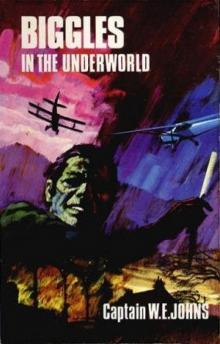 Biggles in the Underworld
Biggles in the Underworld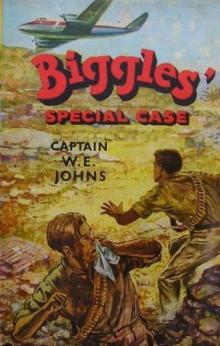 Biggles' Special Case
Biggles' Special Case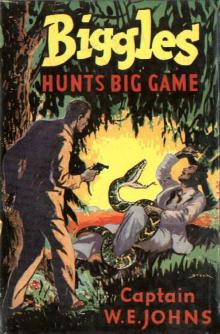 34 Biggles Hunts Big Game
34 Biggles Hunts Big Game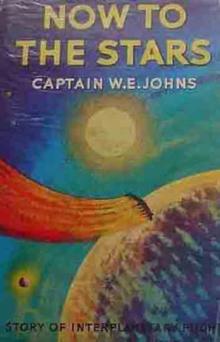 03 Now To The Stars
03 Now To The Stars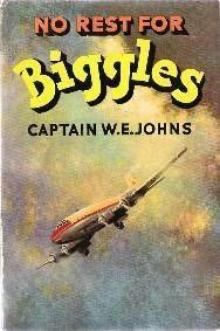 55 No Rest For Biggles
55 No Rest For Biggles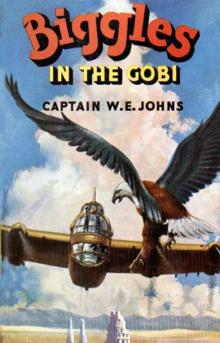 46 Biggles in the Gobi
46 Biggles in the Gobi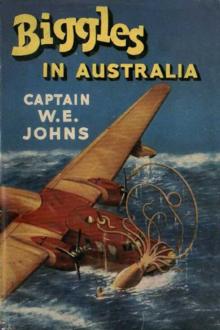 52 Biggles In Australia
52 Biggles In Australia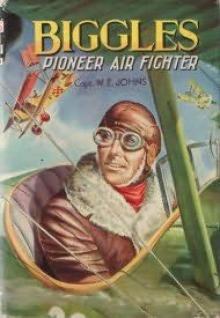 51 Biggles Pioneer Air Fighter
51 Biggles Pioneer Air Fighter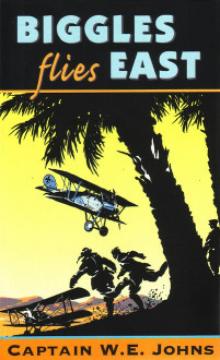 05 Biggles Flies East
05 Biggles Flies East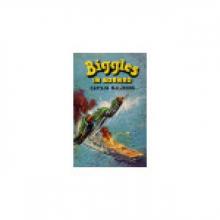 28 Biggles In Borneo
28 Biggles In Borneo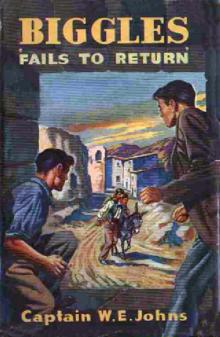 29 Biggles Fails to Return
29 Biggles Fails to Return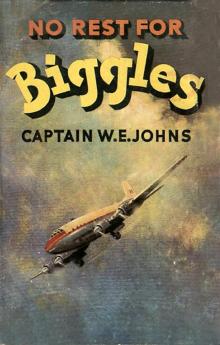 55 No Rest For Biggles (v2)
55 No Rest For Biggles (v2)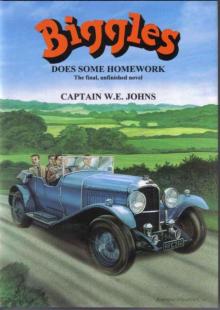 Biggles Does Some Homework
Biggles Does Some Homework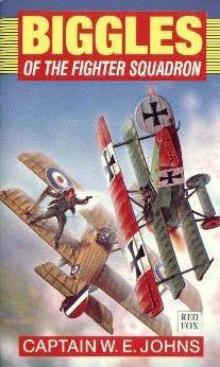 Biggles of the Camel Squadron
Biggles of the Camel Squadron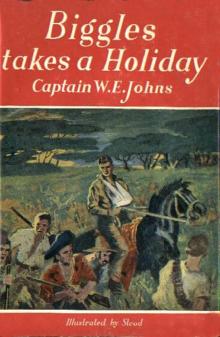 35 Biggles Takes A Holiday
35 Biggles Takes A Holiday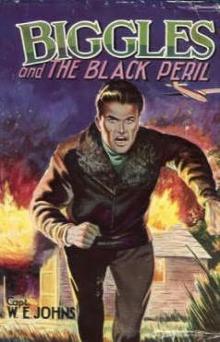 Biggles And The Black Peril (06)
Biggles And The Black Peril (06)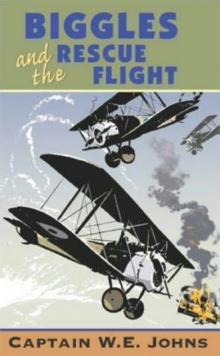 17 Biggles And The Rescue Flight
17 Biggles And The Rescue Flight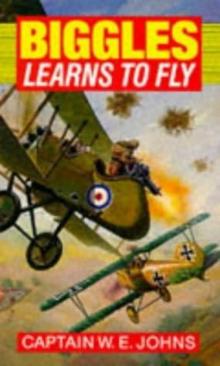 Biggles Learns To Fly
Biggles Learns To Fly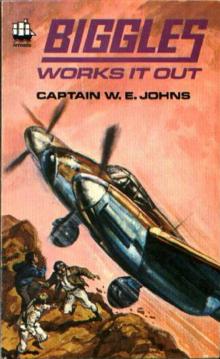 40 Biggles Works It Out
40 Biggles Works It Out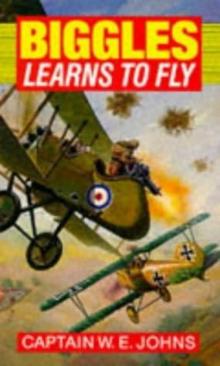 05 Biggles Learns To Fly
05 Biggles Learns To Fly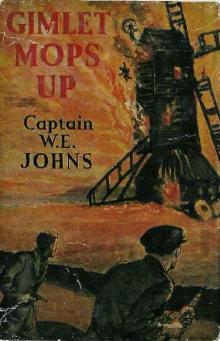 04 Gimlet Mops Up
04 Gimlet Mops Up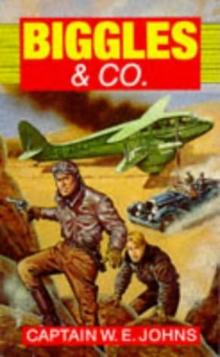 10 Biggles and Co
10 Biggles and Co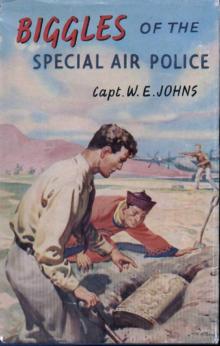 47 Biggles Of The Special Air Police
47 Biggles Of The Special Air Police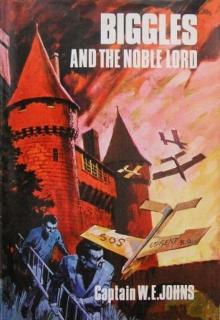 Biggles and the Noble Lord
Biggles and the Noble Lord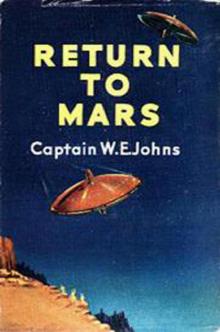 T2 Return To Mars
T2 Return To Mars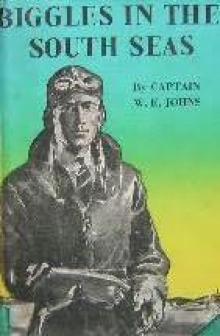 21 Biggles In the South Seas
21 Biggles In the South Seas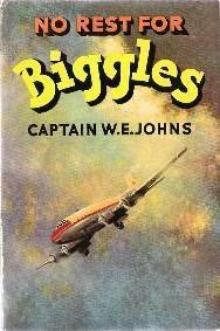 No Rest For Biggles
No Rest For Biggles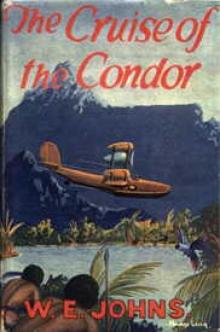 Biggles In The Cruise Of The Condor (02)
Biggles In The Cruise Of The Condor (02)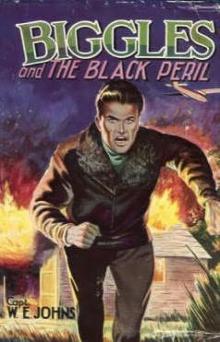 06 Biggles And The Black Peril
06 Biggles And The Black Peril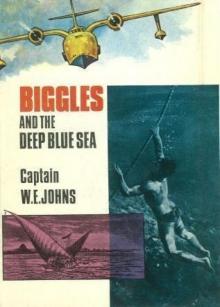 Biggles and the Deep Blue Sea
Biggles and the Deep Blue Sea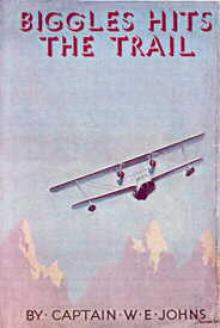 06 Biggles Hits The Trail
06 Biggles Hits The Trail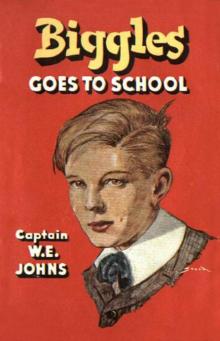 39 Biggles Goes To School
39 Biggles Goes To School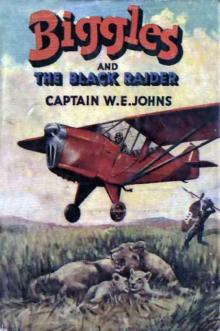 44 Biggles and the Black Raider
44 Biggles and the Black Raider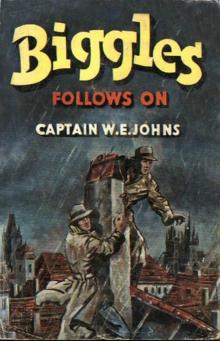 42 Biggles Follows On
42 Biggles Follows On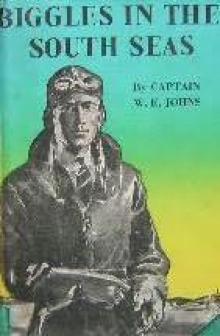 Biggles In the South Seas
Biggles In the South Seas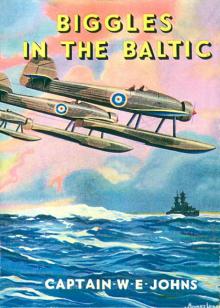 21 Biggles In The Baltic v3
21 Biggles In The Baltic v3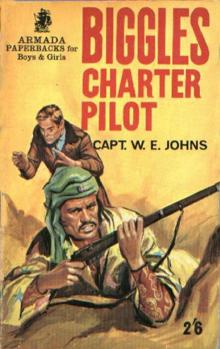 27 Biggles - Charter Pilot
27 Biggles - Charter Pilot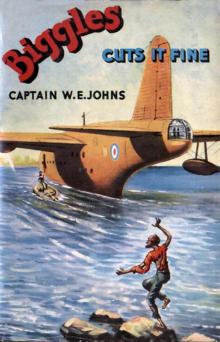 49 Biggles Cuts It Fine
49 Biggles Cuts It Fine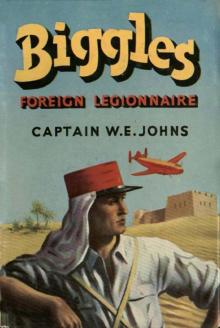 51 Biggles Foreign Legionaire
51 Biggles Foreign Legionaire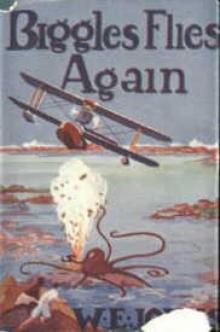 04 Biggles Flies Again
04 Biggles Flies Again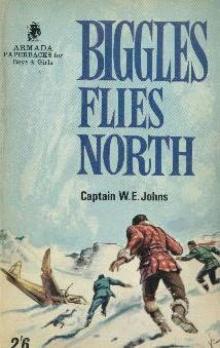 16 Biggles Flies North
16 Biggles Flies North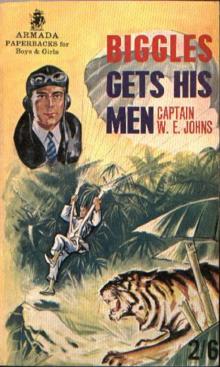 37 Biggles Gets His Men
37 Biggles Gets His Men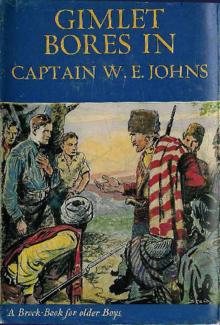 07 Gimlet Bores In
07 Gimlet Bores In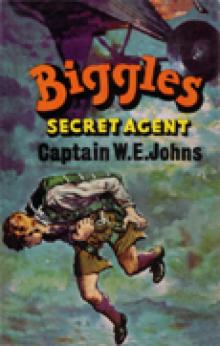 19 Biggles Secret Agent
19 Biggles Secret Agent 32 Biggles In The Orient
32 Biggles In The Orient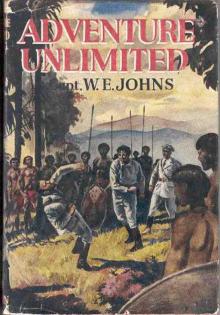 Adventure Unlimited
Adventure Unlimited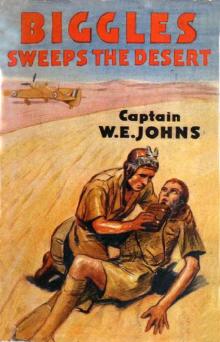 26 Biggles Sweeps The Desert
26 Biggles Sweeps The Desert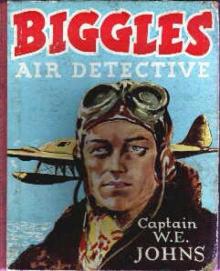 Biggles Air Detective (43)
Biggles Air Detective (43) 36 Biggles Breaks The Silence
36 Biggles Breaks The Silence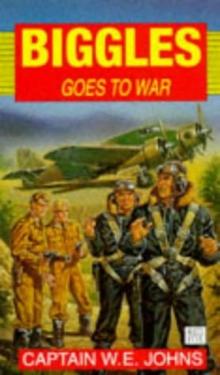 14 Biggles Goes To War
14 Biggles Goes To War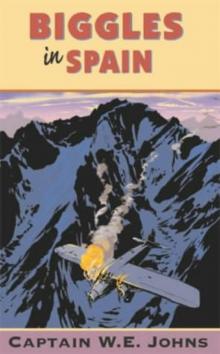 18 Biggles In Spain
18 Biggles In Spain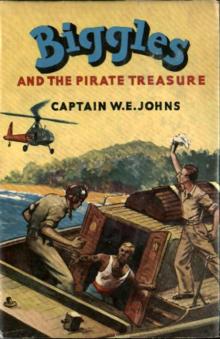 50 Biggles and the Pirate Treasure
50 Biggles and the Pirate Treasure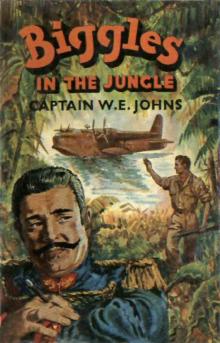 25 Biggles In The Jungle
25 Biggles In The Jungle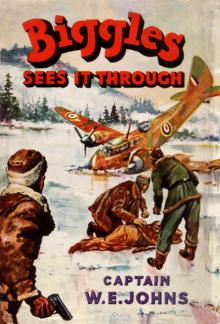 23 Biggles Sees It Through
23 Biggles Sees It Through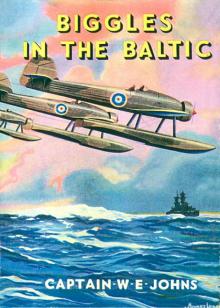 21 Biggles In The Baltic
21 Biggles In The Baltic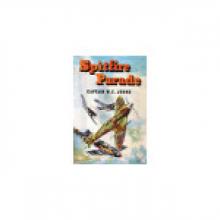 24 Spitfire Parade
24 Spitfire Parade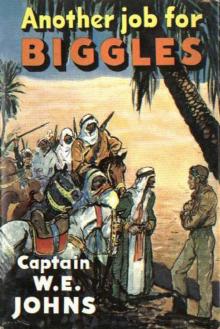 38 Another Job For Biggles
38 Another Job For Biggles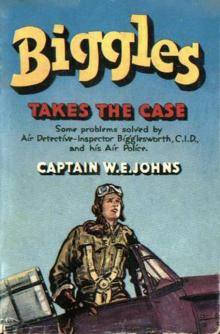 41 Biggles Takes The Case
41 Biggles Takes The Case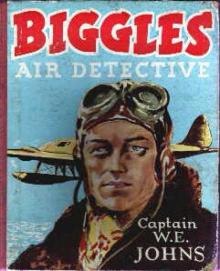 43 Biggles Air Detective
43 Biggles Air Detective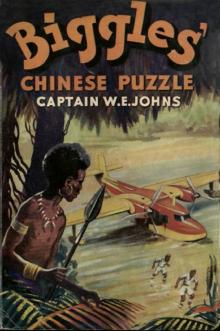 53 Biggles Chinese Puzzle
53 Biggles Chinese Puzzle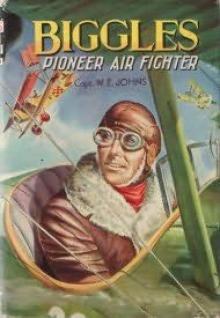 Biggles Pioneer Air Fighter (51)
Biggles Pioneer Air Fighter (51)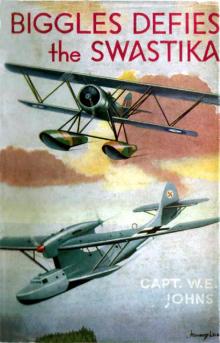 22 Biggles Defies The Swastika
22 Biggles Defies The Swastika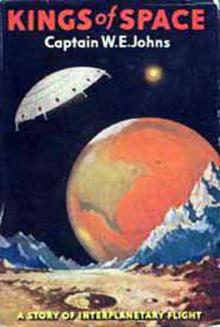 01 Kings Of Space
01 Kings Of Space